*NURSING > QUESTIONS & ANSWERS > Chapter 13: Pain Management During Childbirth Foundations of Maternal-Newborn & Women’s Health Nur (All)
Chapter 13: Pain Management During Childbirth Foundations of Maternal-Newborn & Women’s Health Nursing, 7th Edition. questions and answers.
Document Content and Description Below
1. Childbirth preparation can be considered successful if which of the following outcomes is achieved? a. Labor was pain-free. b. The birth experiences of friends and families were ignored. c. Onl... y nonpharmacologic methods for pain control were used. d. The patient rehearsed labor and practiced skills to master pain. ANS: D Preparation allows the woman to rehearse for labor and to learn new skills to cope with the pain of labor and the expected behavioral changes. Childbirth preparation does not guarantee a pain-free labor. A woman should be prepared for pain and anesthesia–analgesia realistically. Friends and families can be an important source of support if they convey realistic information about labor pain. Women will not always achieve their desired level of pain control by using nonpharmacologic methods alone. DIF: Cognitive Level: Analysis OBJ: Nursing Process Step: Evaluation MSC: Patient Needs: Psychosocial Integrity 2. A woman with a known heroin habit is admitted in early labor. Which drug is contraindicated with opiate-dependent patients? a. Nalbuphine (Nubain) b. Hydroxyzine (Vistaril) c. Promethazine (Phenergan) d. Diphenhydramine (Benadryl) ANS: A Nalbuphine may precipitate withdrawal if given to an opiate-dependent woman. Hydroxyzine is an antihistamine with antiemetic effects. Promethazine usually relieves nausea and vomiting. Diphenhydramine is commonly used to relieve pruritus from epidural narcotics. DIF: Cognitive Level: Understanding OBJ: Nursing Process Step: Planning MSC: Patient Needs: Physiologic Integrity 3. A patient is admitted to the labor and birth room in active labor; contractions are 4 to 5 minutes apart and last for 30 seconds. The nurse needs to perform a detailed assessment. When is the best time to ask questions or perform procedures? a. After the contraction is over b. When it is all right with the coach c. During the increment of the next contraction d. After administration of analgesic-anesthetic ANS: A [Show More]
Last updated: 2 years ago
Preview 1 out of 14 pages

Buy this document to get the full access instantly
Instant Download Access after purchase
Buy NowInstant download
We Accept:

Reviews( 0 )
$7.00
Can't find what you want? Try our AI powered Search
Document information
Connected school, study & course
About the document
Uploaded On
Jun 25, 2021
Number of pages
14
Written in
Additional information
This document has been written for:
Uploaded
Jun 25, 2021
Downloads
0
Views
120

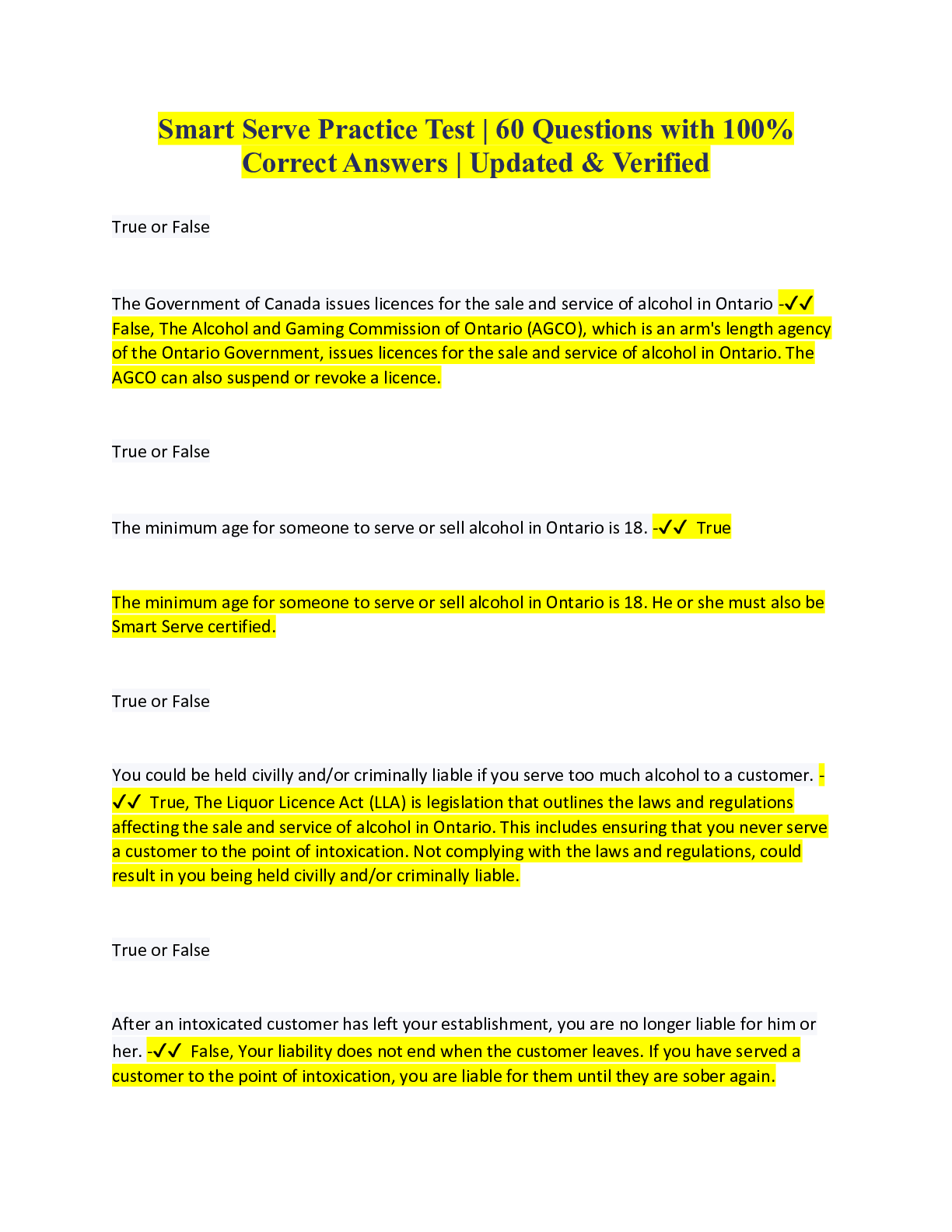
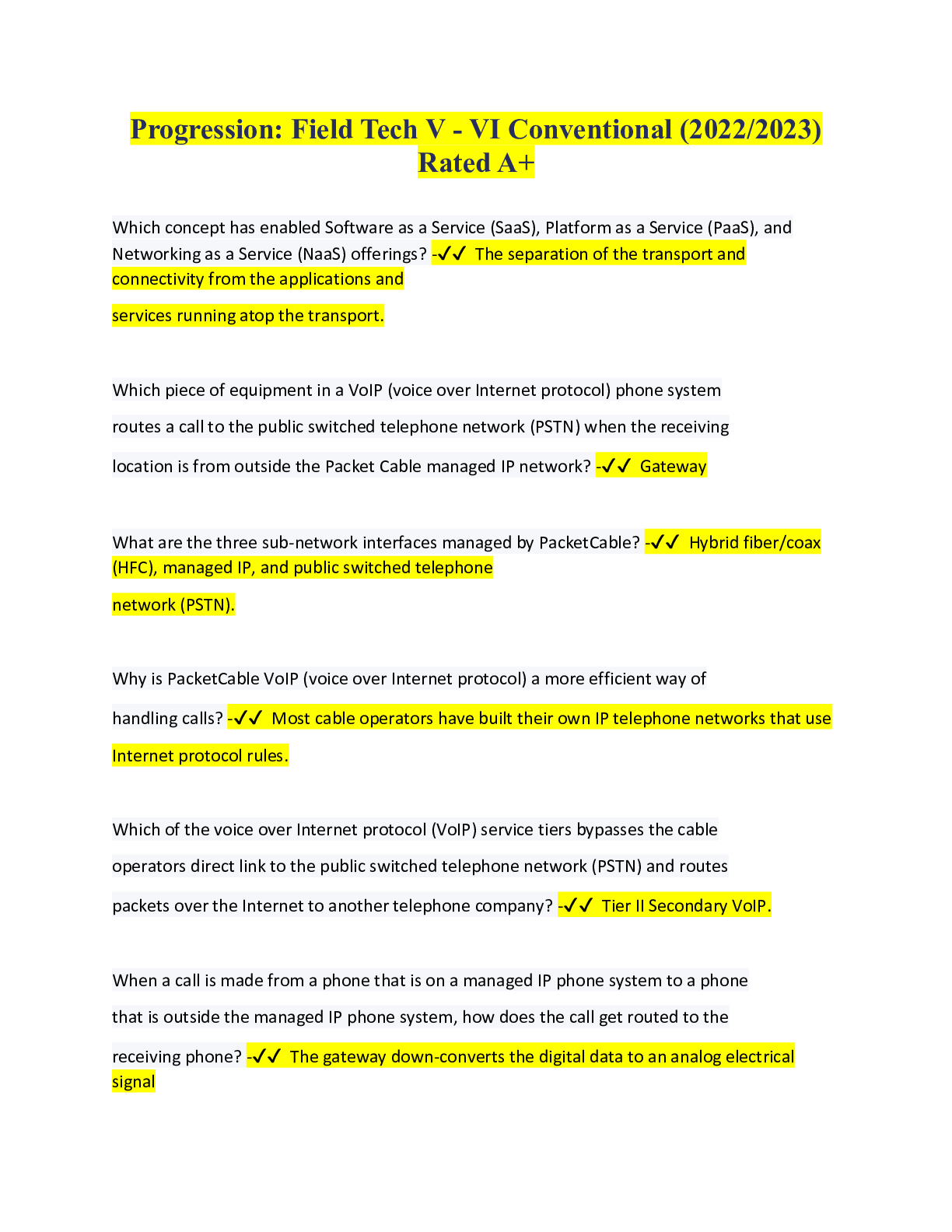
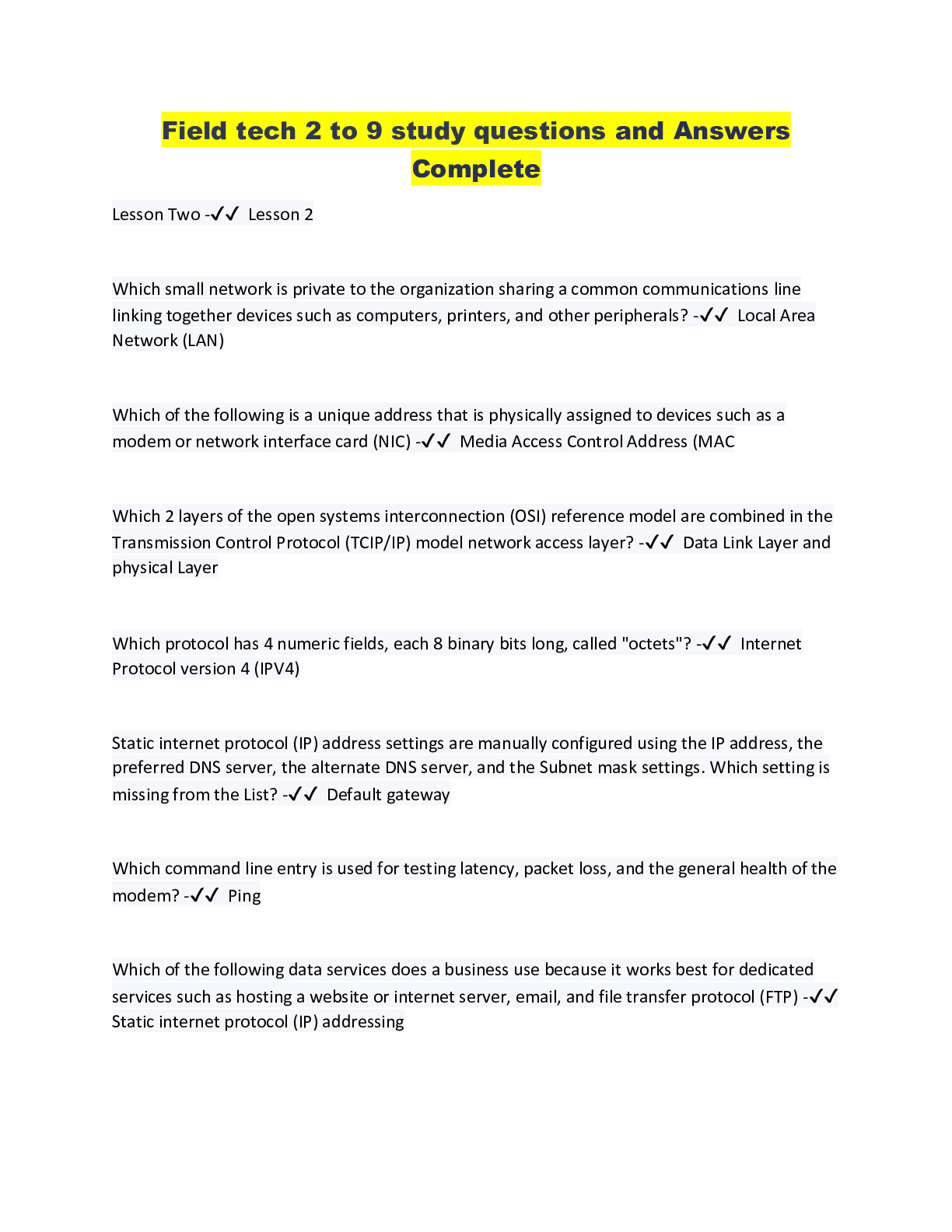
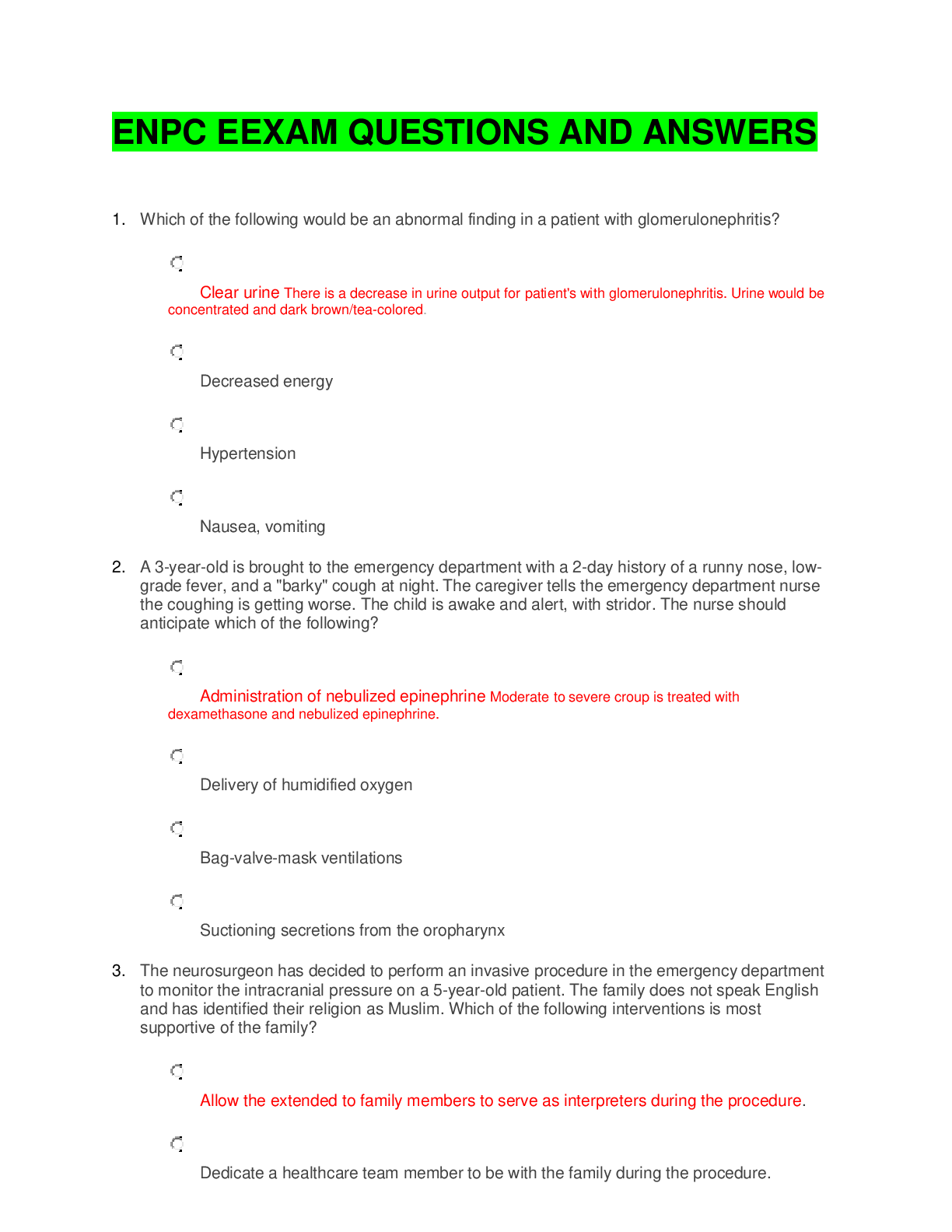
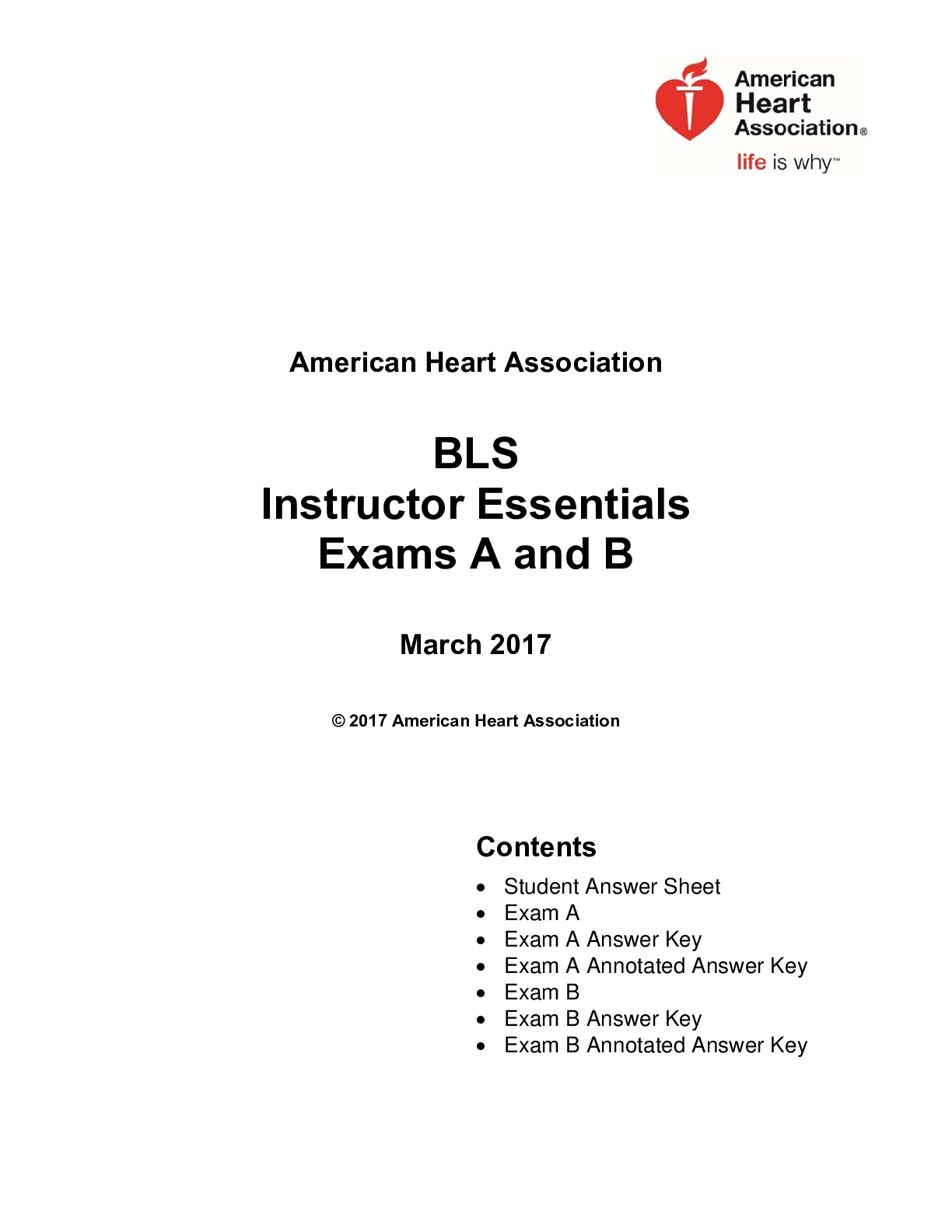

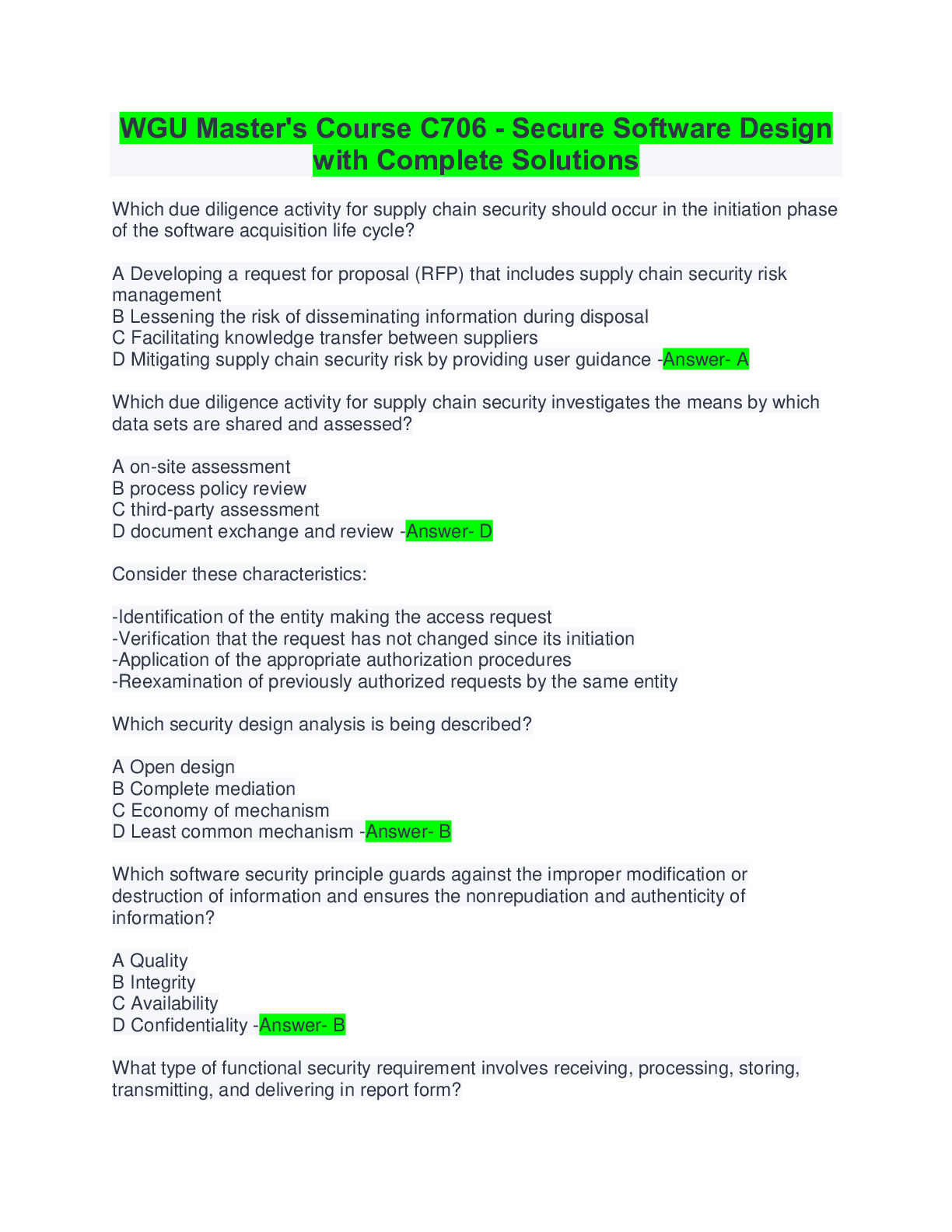

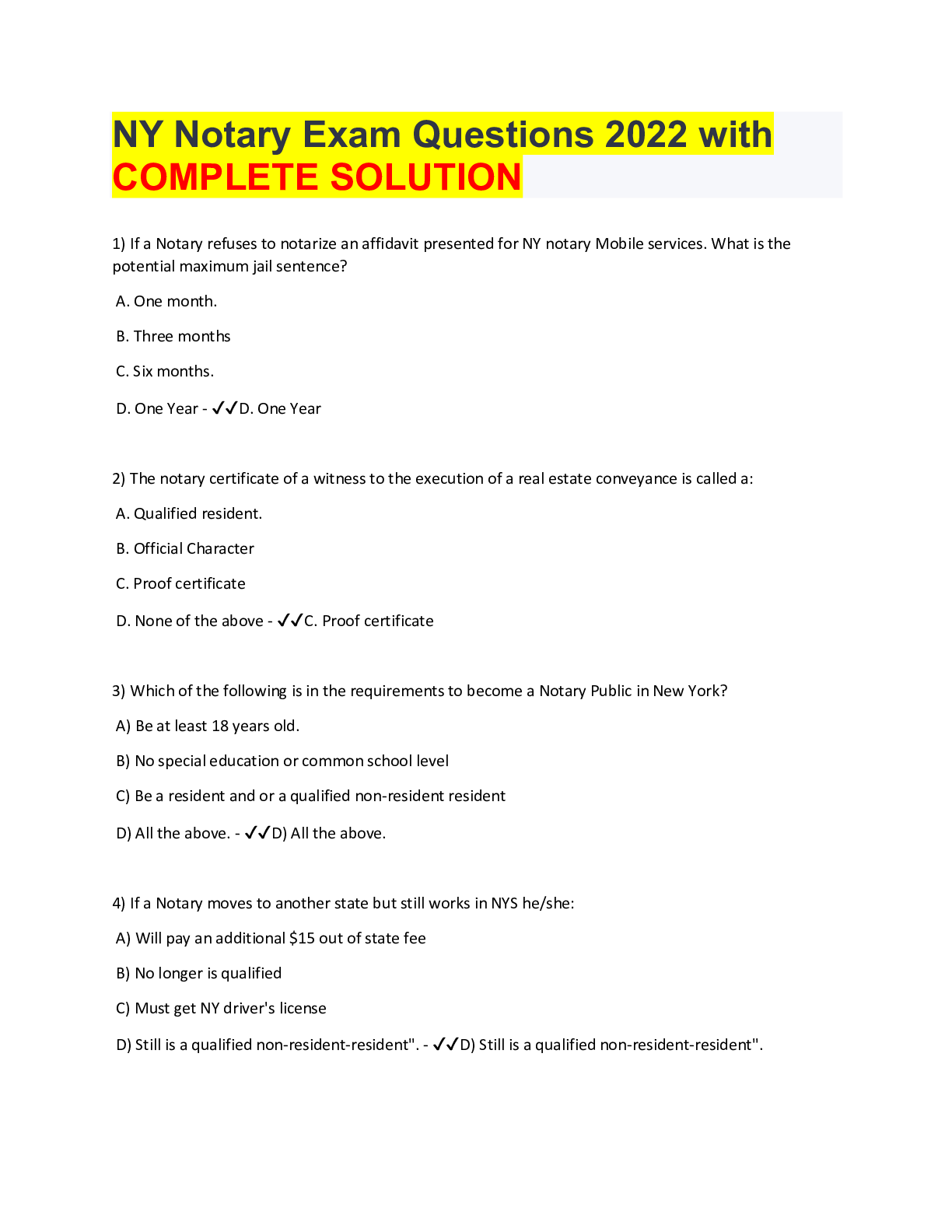
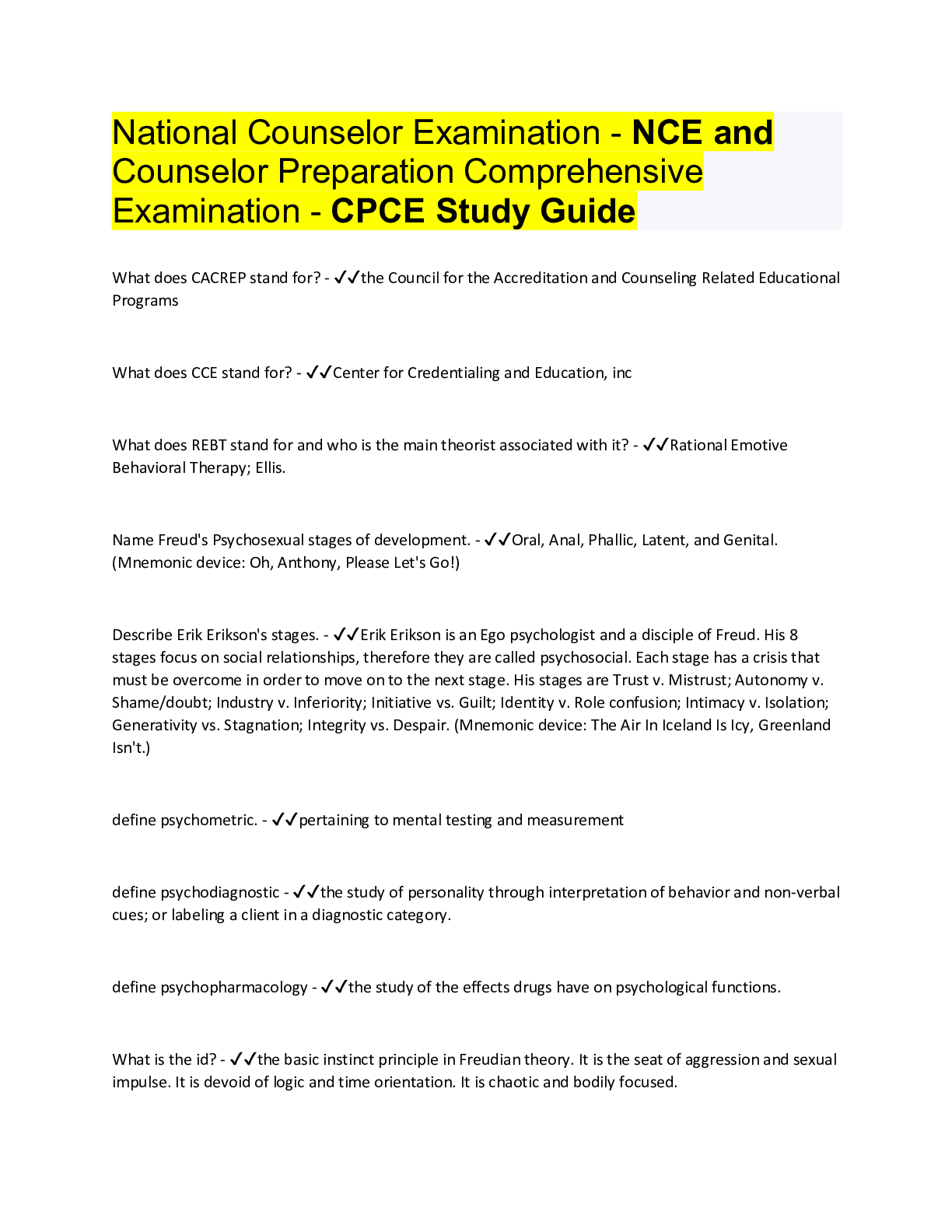
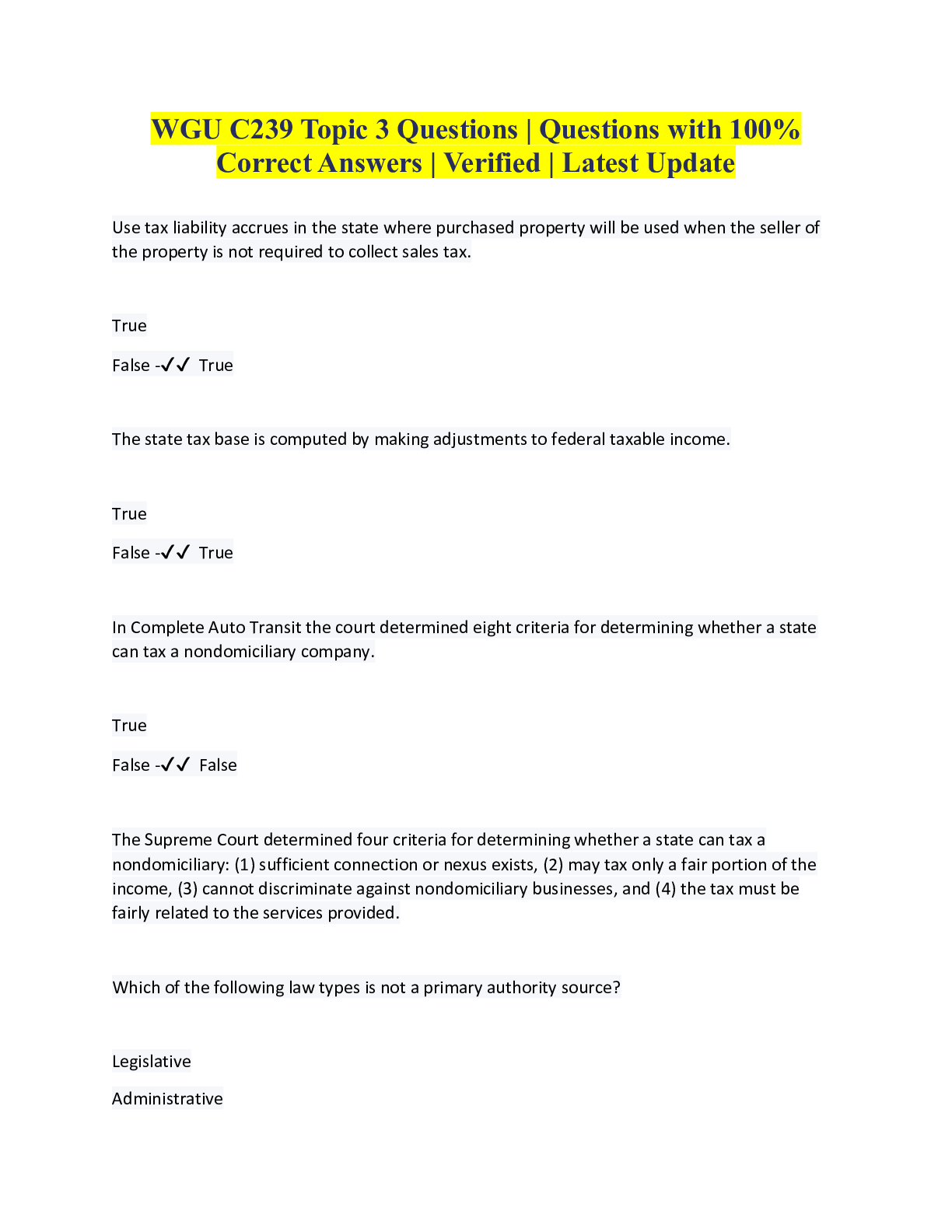
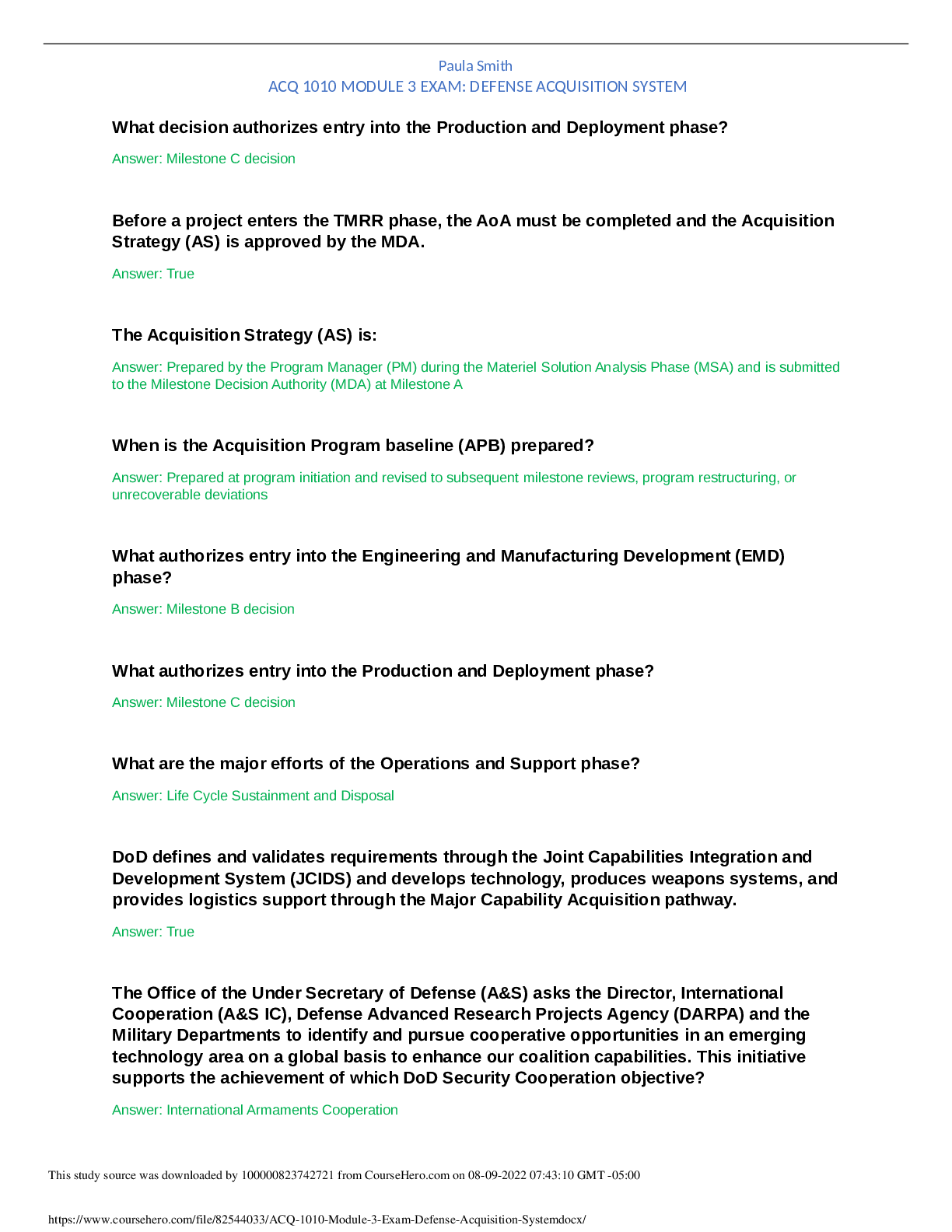
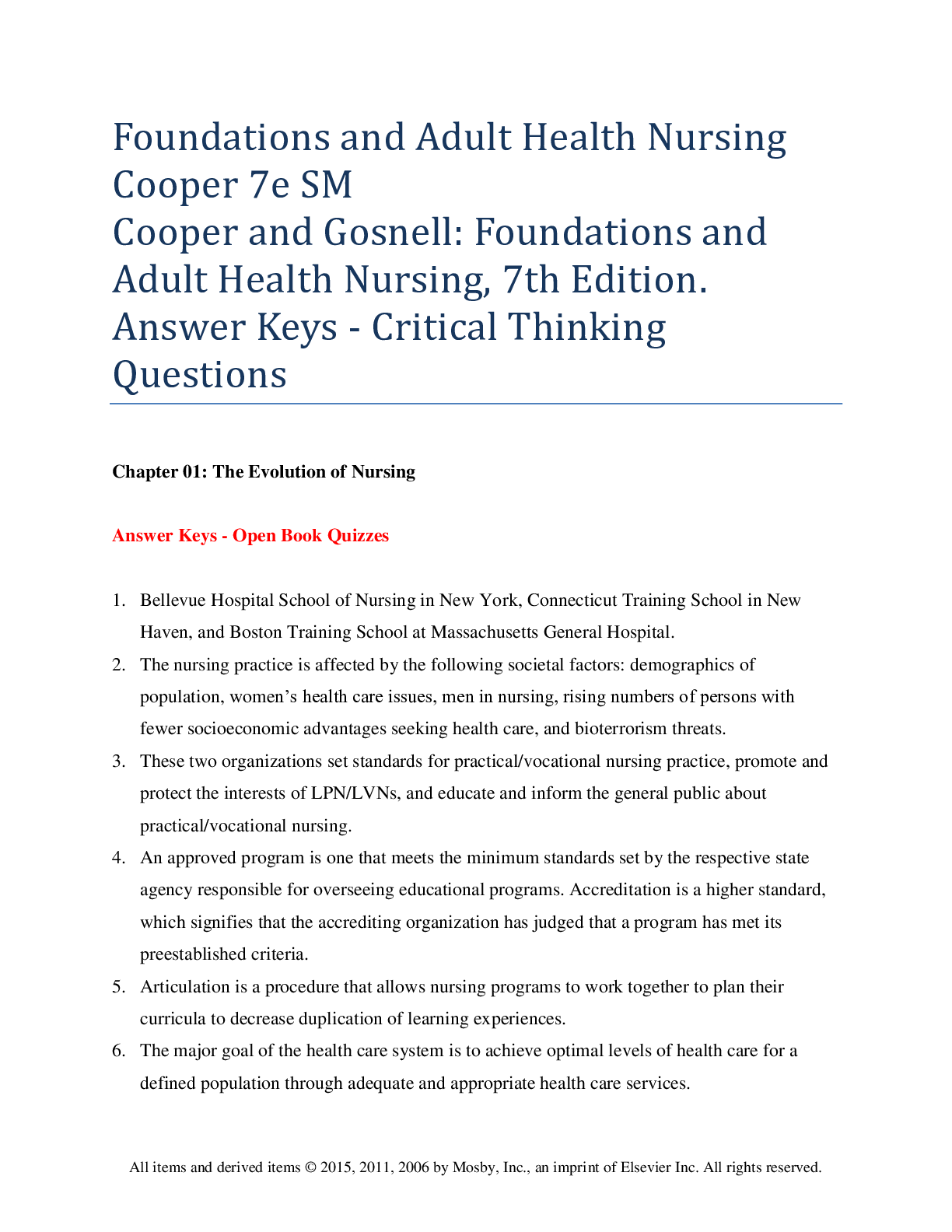
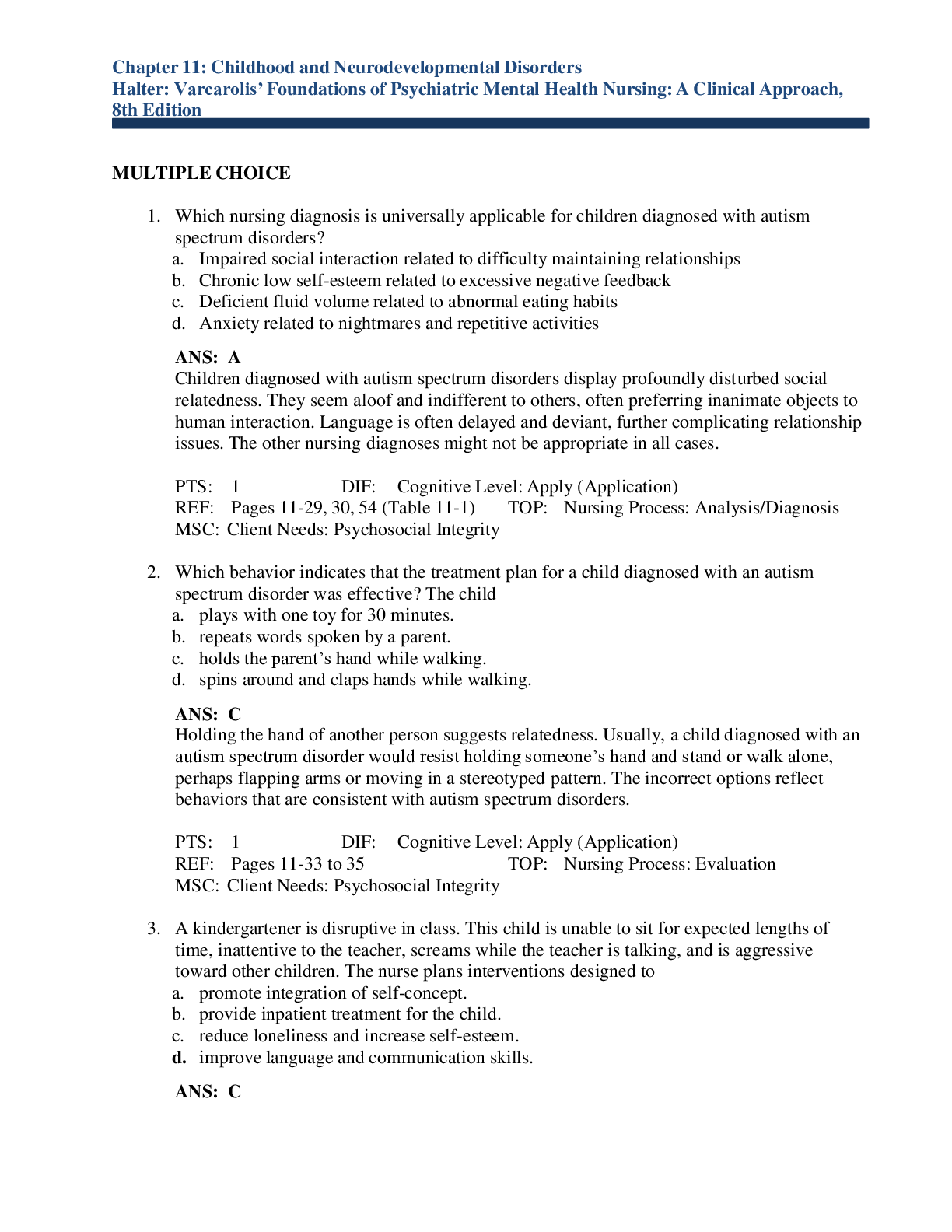







 Questions with Complete Answers.png)
 Questions with Complete Answers.png)

